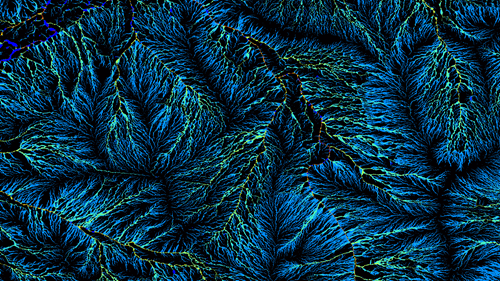[Music plays and an image appears of Dr Dong Han Seo walking towards the sea and taking a water sample from the sea with the Sydney Harbour bridge in the background and text appears: Sydney Harbour’s secret to life-saving water filtration]
[Image changes to show Dong Han looking at a large clear beaker of water]
Dr Dong Han Seo: Clean water is a big challenge in the 21st century.
[Image changes to show Dong Han and four other team members wearing CSIRO t-shirts and smiling at the camera]
Our team is motivated to solve and tackle this problem.
[Image changes to show Dong Han talking to the camera and text appears: Dr Dong Han Seo, CSIRO]
We’ve found a real-world application of graphene. Last year, we invented a unique graphene production process called Graphair where we can make low cost graphene from renewable materials and using our Graphair film we made a perfect water purification membrane.
[Image changes to show a male in a laboratory holding a small piece of membrane in tweezers and looking at it]
We wanted to demonstrate real-world application of graphene.
[Image changes to show Dong Han looking at a beaker of water and then the image changes to show Dong Han holding up a small piece of membrane]
We took the real contaminated water from the Sydney Harbour and we purified them in a single step to a drinkable water.
[Image changes to show Dong Han talking to the camera]
Our graphene membrane enables 100% salt rejection as well as 100% rejection of household contaminants such as detergents and oil without fouling which was tested for over many days.
[Images move through of a male looking at the membrane, liquid being put onto a microscope slide, a view looking down the microscope and Dong Han smiling in front of the Sydney Harbour Bridge]
Potential impact of this research is actually enormous because what we are talking about is eliminating all the expensive complex pre-treatment, water treatment process, enabling single step membrane based purification process where, regardless of the different class of, or how heavily contaminated the water is, we will get the pure drinkable water in single step.
[Image shows a beaker of water being thrown in front of Dong Han as he stands in front of the Sydney Harbour Bridge smiling]
[Image changes to show the CSIRO logo on a blue screen and text appears: Australia’s innovation catalyst]
Using their own specially designed form of graphene, 'Graphair', CSIRO scientists have supercharged water purification, making it simpler, more effective and quicker.
The new filtering technique is so effective, water samples from Sydney Harbour were safe to drink after passing through the filter.
The breakthrough research was published today in Nature Communications.
"Almost a third of the world's population, some 2.1 billion people, don't have clean and safe drinking water," the paper's lead author, CSIRO scientist Dr Dong Han Seo said.
"As a result, millions – mostly children – die from diseases associated with inadequate water supply, sanitation and hygiene every year.
"In Graphair we've found a perfect filter for water purification. It can replace the complex, time consuming and multi-stage processes currently needed with a single step."
While graphene is the world’s strongest material and can be just a single carbon atom thin, it is usually water repellent.
Using their Graphair process, CSIRO researchers were able to create a film with microscopic nano-channels that let water pass through, but stop pollutants.
As an added advantage Graphair is simpler, cheaper, faster and more environmentally friendly than graphene to make.
It consists of renewable soybean oil, more commonly found in vegetable oil.
Looking for a challenge, Dr Seo and his colleagues took water samples from Sydney Harbour and ran it through a commercially available water filter, coated with Graphair.
Researchers from QUT, the University of Sydney, UTS, and Victoria University then tested and analysed its water purification qualities.
The breakthrough potentially solves one of the great problems with current water filtering methods: fouling.
Over time chemical and oil based pollutants coat and impede water filters, meaning contaminants have to be removed before filtering can begin. Tests showed Graphair continued to work even when coated with pollutants.
Without Graphair, the membrane's filtration rate halved in 72 hours.
When the Graphair was added, the membrane filtered even more contaminants (99 per cent removal) faster.
"This technology can create clean drinking water, regardless of how dirty it is, in a single step," Dr Seo said.
"All that's needed is heat, our graphene, a membrane filter and a small water pump. We're hoping to commence field trials in a developing world community next year."
CSIRO is looking for industry partners to scale up the technology so it can be used to filter a home or even town's water supply.
It's also investigating other applications such as the treatment of seawater and industrial effluents.

